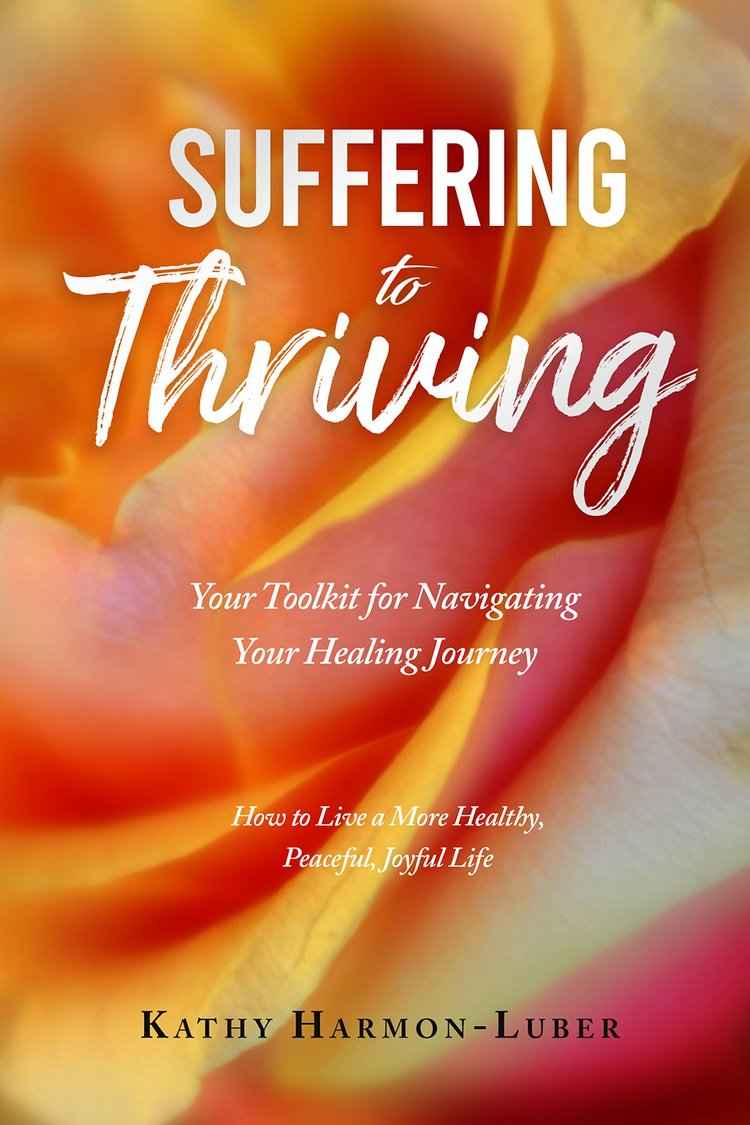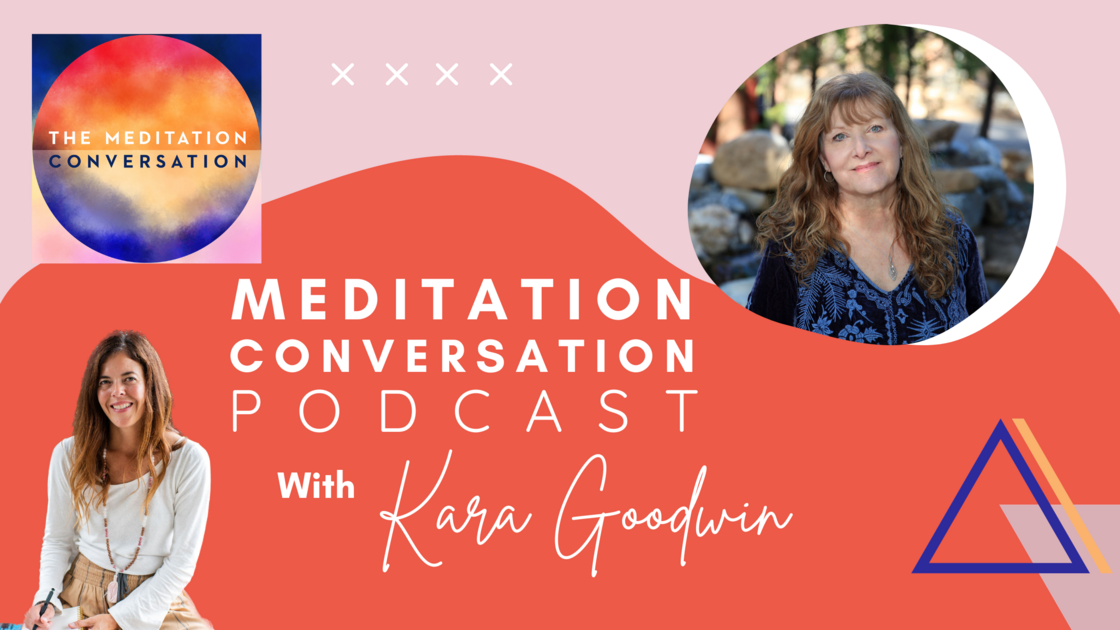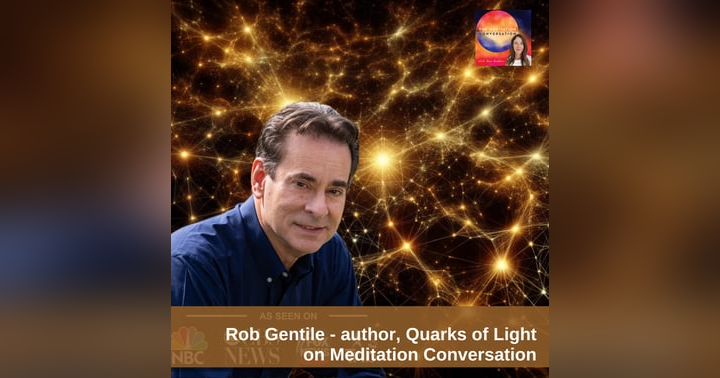I was fascinated to learn about the transformative journey Kathy Harmon-Luber undertook. Kathy faced adversity head-on and emerged stronger and wiser. Her experience is not just one of survival, but of thriving, as she weathered the storm of a severe health crisis that left her bedridden for over five years. Despite the hurdles, she discovered the power of meditation, visualization, and reiki - tools that not only helped her heal but also reshaped her perception of life. In episode 298 of the Meditation Conversation podcast, she highlighted the practices and unwavering determination that led her to regain her active lifestyle and find new joys and passions.
In this episode we meet Kathy, an exceptional woman who has turned adversities into opportunities. Kathy is known for her strength and determination, as she has overcome life-altering health challenges. Instead of succumbing to her struggles, she chose to journey from suffering to thriving. An accomplished author, her best-selling book has impacted many lives, propelling readers on their personal healing journeys. Kathy is also a certified sound therapy and sound healing practitioner, harnessing the power of sound to promote wellness.
Facing challenging health crises or difficult circumstances can be an overwhelming experience that tests our resilience and ability to cope. Finding the strength to endure and even transform through these hardships is crucial to our overall well-being and ability to move forward. This is not just important for our personal life, but it can also improve all areas of life by fostering resilience, perseverance, and adaptability. These attributes are highly valued in every sphere of life and can lead to personal growth and success.
In this post, we'll focus on key takeaways in episode 298:
-
What are some alternative methods of healing when dealing with health crises?
-
How can meditation, visualization, and reiki aid in personal recovery and resilience?
-
What role does mindset play in navigating through challenging health conditions?
-
Why are self-care and self-compassion crucial components of a healing journey?
-
Can sound healing be a beneficial practice for relieving stress and anxiety during a health crisis?
1. What are some alternative methods of healing for individuals dealing with health crises?
There's a whole spectrum of options to consider here. Traditionally, we rely heavily on modern medicine, but there's an ever-growing body of knowledge suggesting that alternative healing methods can play a vital role in recovery, even in challenging health conditions. These methods can serve as companions to conventional medical treatment, encompassing a range of practices, including sound healing, meditation, and reiki, among others. They offer another avenue to support your healing journey, proving particularly beneficial when traditional medical interventions fall short or are no longer possible due to complicating factors.
In the conversation with Kathy, we catch glimpses of the profound impact these alternative healing methods can have. Kathy herself is a testament to this. Experiencing multiple spinal disc ruptures and being bedridden for over five years, she turned to practices such as sound healing, meditation and reiki. Kathy also emphasized the transformative role of the mind in the healing process, using empowering questions to invigorate a shift in mindset from suffering to thriving. As an author and certified sound therapy and sound healing practitioner, Kathy is a big proponent of self-care and self-compassion as pivotal factors aiding her healing journey.
Essentially, what stands out from Kathy's experience is that these alternative healing methods served not just as a means of physical healing, but as all-encompassing wellness practices that nurtured her mind, body and spirit in tandem. While modern medicine is great at addressing symptoms and acute treatments, alternative healing methods utilize a holistic approach, enabling you to cultivate a deepened sense of personal wellness, resilience and power. Kathy's story underlines this beautifully, as it resonates with hope, underscores the pivotal role of mindset, and emphasizes the potential of sound healing and similar modalities. Her perspective offers a rounded understanding of the healing process, reminding us that even during challenging health crises, we can claim ownership of our journeys and find avenues for resilience, transformation, and healing.
2. How can meditation, visualization, and reiki aid in personal recovery and resilience?
While we all face everyday challenges, life sometimes throws more significant hurdles that test our resilience. Navigating through such difficult times, especially health crises, isn't easy. That's where tools like meditation, visualization, and reiki come in. These practices tap into the power of mind and consciousness, facilitating recovery in ways traditional medicine alone may struggle to achieve.
By focusing our attention and drawing energy towards healing, these techniques can effectively ease the distress associated with physical illnesses. Through them, we have the chance to uncover new strengths and cope better with adversity. Looking at Kathy's incredible journey, she turned to these techniques during a severe health crisis. As doctors failed to provide the help she needed, Kathy chose to complement their efforts with alternative practices. She embraced methods such as visualization, a process that involved creating a mental image of a desirable outcome. Through this, she could envision her body healing, enhancing her motivation to improve. Likewise, invoking the universal life energy through reiki, she was able to redirect her energy towards healing. The calming effects of meditation worked wonders in reducing her stress levels, paving the way for better physical health. Following these practices, Kathy managed to make a remarkable recovery, regaining her lost vitality and passion for life.
Understanding the power of meditation, visualization, and reiki becomes crucial when dealing with challenging circumstances or ill health. They provide a much-needed light in the otherwise daunting path to recovery. By harnessing our mind's power, we can begin to influence our body's healing processes positively. Just as you wouldn't neglect the need for medical treatment, addressing psychological and emotional well-being through these practices should also be a priority. Kathy's story reinforces that with determination and the right tools, thriving through adversity is possible.
3. What role does mindset play in navigating through challenging health conditions?
Navigating through challenging health conditions requires more than just physical resilience; it also entails a significant mental shift. Mindset plays a pivotal role in healing.
The mind is an incredibly powerful tool and harnessing its strengths can remarkably influence the healing process. It can govern your reactions to discomfort, pain, and adversity. It is crucial to consciously decide to thrive despite the circumstances. This conscious decision might seem difficult when pain, disappointment, and struggles cloud judgment and vision. However, nurturing a positive and enduring mindset can lead to unexpected breakthroughs and opportunities for growth and transformation. From Kathy's perspective, mindset made a tangible difference in her healing journey. Despite the potential physical limitations diagnosed by medical professionals, Kathy chose to approach her condition with courage and determination, drawing on internal resources like meditation, visualization, and reiki. She believed in her capacity to heal and transformed her struggles into a journey of hope and resilience. Throughout this process, she discovered new paths to fulfilment and well-being.
Kathy exemplifies the empowering question she often asks herself: Am I choosing to suffer or to thrive? This embodies the essence of her beliefs about mindset - that it is crucial in guiding your reactions and actions, laying the foundation for a thriving life despite adversity. It's about making a conscious decision to move forward, to stay motivated, to fight the adversities, and most importantly, to choose life every day. The mindset dictates the way you respond to pain or adversity; it paves the way to perceive and react to the various elements of the healing journey. Having a positive and robust mindset becomes a protective shield during tough times. Although people may not be able to control the health conditions they find themselves in, they can control their responses to these situations, which can make a significant difference in the overall journey.
4. Why are self-care and self-compassion crucial components of a healing journey?
Self-care and self-compassion are pivotal elements in the journey of healing and recovery. These concepts go beyond bubble baths and pampering oneself (although these are nice!); they are about acceptance, self-respect, and nurturing one's physical, emotional, and mental well-being. Think of it as a form of internal dialogue, a conversation we have with ourselves. When we face health challenges or difficult circumstances, it's easy to fall into patterns of self-criticism and blame. But what if we showed ourselves the same kindness and understanding that we extend to a loved one in distress? That's where the transformative power of self-care and self-compassion begins.
In our conversation, Kathy emphasized how these principles were instrumental in her healing journey. In acknowledging her pain, accepting her limitations, and prioritizing her needs without judgment that she found resilience and hope. She described her conscious decision to thrive instead of just cope, to acknowledge her situation without attaching negativity or self-blame. Her strength came from within, with heaps of self-love, kindness, and self-compassion.
Kathy's story underlines the importance of an empowering inner dialogue, coping mechanisms, and the ability to take steps forward, no matter how small they might seem. Often, our struggles with health or life circumstances echo in the way we perceive ourselves. We may sink into feelings of helplessness, self-pity, or guilt, which can further fuel our pain, creating a vicious cycle. By nurturing self-compassion, we can break this cycle and transform our perception of ourselves and our situation.
5. Can sound healing be a beneficial practice for relieving stress and anxiety during a health crisis?
Sound healing is another powerful tool in providing comfort and relief during a health crisis. Whether dealing with physical pain, emotional distress, or mental pressure, sound healing practices offer a holistic way of engaging the body's natural healing abilities. It involves harnessing various vibrations and frequencies produced by instruments such as crystal bowls, Tibetan bowls, chimes, and the gong. These sounds have been known to bring an individual's energies into alignment, effectively lessening the impact of stress and anxiety.
Kathy talks about how sound healing has transformed her life, offering solace when Western medicine seemed to fail. One pivotal example she shared is about the gong, which has an extensive frequency range, making it a potent instrument for healing. (The gong was a strong favorite advocated also in episode 292 with Binyamin Klemper.) She also shared a notable discovery from UCLA that all cells in our bodies resonate at unique frequencies. When cells are unhealthy or dying, they stop vibrating at their characteristic sound. Here's where sound healing can work its magic by applying the correct frequencies to stimulate rejuvenation and revival of these cells. This fundamental idea of sound healing is even gaining recognition in hospitals and nursing homes.
Understanding the benefits and implications of sound healing is crucial for individuals grappling with health crises. Embracing such therapeutic practices can be a game-changer—it certainly was for Kathy. She also shared that simple things such as humming or singing at home can stimulate healing processes within the body. For instance, humming has shown to stimulate the vagus nerve, responsible for numerous bodily functions, including regulating the heart rate and blood pressure.
Connect with me here:
Instagram: https://www.instagram.com/kara_goodwin_meditation
Facebook: https://www.facebook.com/karagoodwinmeditation
LinkedIn: https://www.linkedin.com/in/karagoodwinmeditation/
https://www.themeditationconversation.com
https://www.youtube.com/@themeditationconversation















